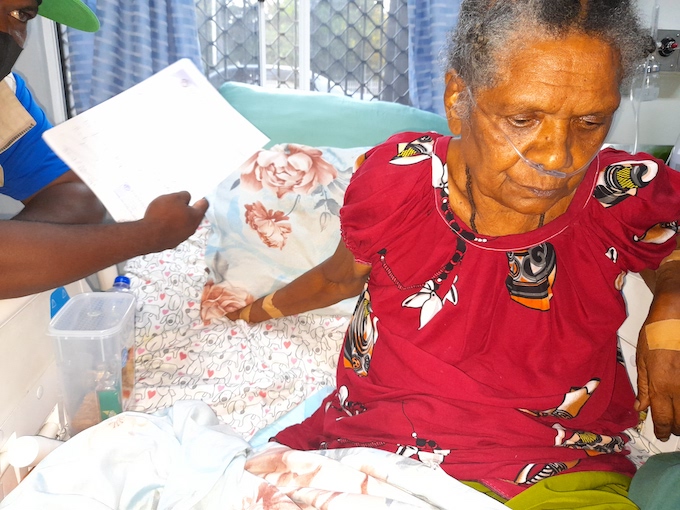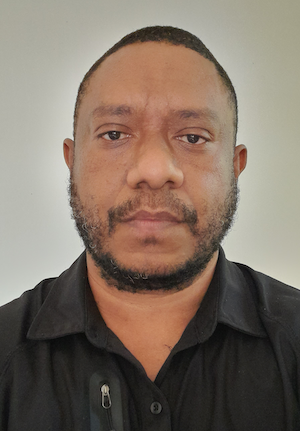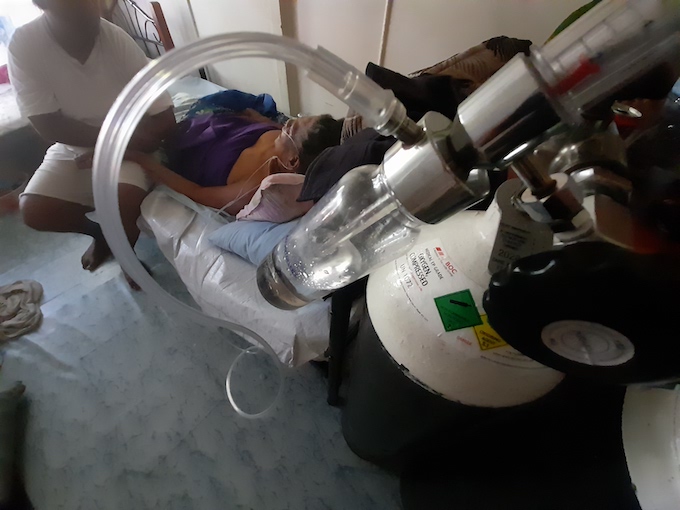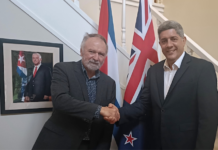
SPECIAL REPORT: By Scott Waide in Port Moresby
Our mother, Patricia, sits on the bed in a small room she is currently sharing with our dad, Peter. There’s an oxygen bottle at the bedside and she’s breathing through a tube.
She was sleeping soundly for a few hours until the power went off. In a city so used to constant power outages, this is just one of many. But it is an added burden when you’re managing two covid-19 patients in recovery.
The room has become extremely hot and mum is now stressed and struggling to breathe. My younger brother comes to help her out to the living room where it is a few degrees cooler in the Port Moresby heat.
It’s a painful four-metre walk on two arthritic knees and lungs not working at full capacity.
We continue to encourage her as we bring her to the nearest chair. It’s a short distance she would normally have done in about 50 seconds. She desperately gasps for air as we bring the oxygen bottle nearer to her and she takes deep breaths and calms down.
The heat is unbearable.
I take the lid of a large plastic container and begin fanning her. It takes about an hour before the power comes back on.
We brought mum home after she was discharged at about 10 pm the night before. We spent a gruelling two weeks in hospital where both our parents were diagnosed with covid-19.
The symptoms
They had travelled in from Popondetta a month ago. Their health deteriorated rapidly in a space of a month. It was highly unusual. Initially, the doctors said our dad tested positive for typhoid and he was put on a course of antibiotics.
But his condition didn’t improve. He lost his appetite, and he was having bouts of extremely high fever.
Our mum, meanwhile, didn’t eat at all for a week. She didn’t have a fever. Although she was showing some signs of shortness of breath. But she refused to say that she was feeling unwell.
It was confusing.

I was passing through and my sister asked me to stay on for the week just in case my presence would encourage them to become better. By the middle of the week, they were both coughing. It wasn’t much, but in their severely weakened state, it became a concern. We made the decision to take them to the hospital.
My mum is 68 and my dad, 72.
They’re fiercely independent and can be extremely stubborn sometimes. So, it took some time to convince them to go to the hospital and to really tell us how they were feeling because they were both not telling us exactly what they were going through.
When we brought mum to the hospital, her oxygen saturation level had dropped to 70 percent. It was the first time she was experiencing that. We were told it was well below what was required for a person to function normally. She had not passed out and was not showing any telling signs of distress.
She was immediately put on oxygen and given medication. Her test results came back positive with traces of covid-19. The next day, we brought in dad. He too tested positive.
Management of mind
We made a decision not to tell them about the covid-19 positive test results to manage their state of mind. Instead, we told them that they had chest infections that had to be treated in the hospital.
We asked lots of questions about covid-19 management. The two doctors present explained that they must manage multiple symptoms that can vary.
As in our mum’s and dad’s case, one had a fever, the other didn’t. One had extreme shortness of breath, the other was somewhat tolerant of low oxygen levels but still needed oxygen from time to time.
Our dad was discharged after two days. Mum stayed on for a whole week. She remained dependent on oxygen for the whole time.
Both have never had to rely on oxygen or have never really suffered from severe pneumonia that required lengthy hospitalisation.
By the end of the week, she was on the road to recovery. All the medication had been given or prescribed. It was now a matter of getting her discharged and managing her recovery at home.

High cost to families
When we went to the oxygen bottle supplier, BOC, we were confronted with the reality of the high cost of covid-19 management for families. There are three parts to the oxygen rig:
1. Oxygen bottle (We opted for a medium-size bottle) – K700+ (NZ$285)
2. Flowmeter – K400+ (NZ$163)
3. Regulator – K1500+ (NZ$610)
We found that the regulator, which is sold by Meddent, a medical equipment supplier in Port Moresby, was more expensive than the oxygen bottle and that an oxygen bottle replacement is cheaper than the initial cost.
We were fortunate that a friend gave us a rig that had the regulator and flowmeter together and we were able to save costs.
Support from family and friends
Within the first 24 hours, we faced another crisis. The oxygen bottle was depleted. It was night and we didn’t know where to get another bottle. We didn’t know how long it would last.
We reached out to friends and family and they assisted. One part of our extended family supplied a brand-new oxygen bottle.
Over the three days after discharge, everyone who came to help (even when we didn’t ask) although they had been through their own covid-19 crisis, had either lost family members or were in recovery. Each of them knew intimately well, how taxing is to families.
Drawing on our strengths
Recovery is hard. Care is mentally taxing on the carer.
Covid-19 is not the usual kind of illness. The best way to explain it for the understanding of non-medical people is that — it is a collection of symptoms that must be treated.
It looks like malaria, dengue, pneumonia, and asthma all in one.
For some, recovery is fast. For older people, it takes longer.
The patient has to be helped to bathe and go to the toilet. The carer has to be vigilant against secondary infections that may come about as a result of poor care. For older people and other severe cases, it is a delicate trade-off — personal dignity versus care and survival.
For Papua New Guinean elders, they need their children around them for support. The reason is simple, they will need to go to the toilet and wash with the help of people they trust.
The Western style of total isolation doesn’t work for us. We are spiritual people who need to stay connected to our kin who will protect their dignity.
I hate covid-19 with a passion. But this crisis is teaching us compassion, kindness, respect and patience. It is teaching us to reach deep into our personal reserves and find the strength to support each other.
There’s simply no room for negativity. Siblings cannot afford to fight or disagree when you’re dealing with elderly parents. You have to be of one mind in order to succeed.
We still have a long way to go. I write this in the hope that it will assist other families who are going through the covid-19 crisis.
- Papua New Guinea’s vaccination rates as of October 25, 2.1 percent first dose, 1.2 percent fully vaccinated. According to the John Hopkins University covid dashboard, Papua New Guinea has 32,279 cases of infection and 415 deaths from covid-19. Health officials believe this is an under-estimate.
Scott Waide is an independent Papua New Guinean journalist who contributes to Asia Pacific Report.











































